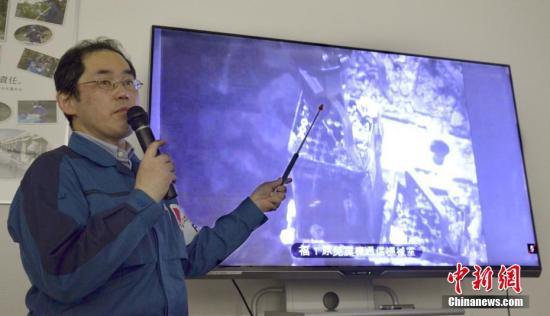BEIJING, April 16 (Xinhua)-On March 11, 2011, a major earthquake and tsunami occurred in East Japan, resulting in a nuclear accident at the Fukushima Daiichi nuclear power plant. Eight years after the accident, the aftermath is still difficult. On the 15th, Tokyo Electric Power Company used remote control system to go deep into the core of the melted unit and move out the first batch of melted nuclear fuel.
[The cleaning work is difficult and slow]
Units 1 to 4 were damaged in the Fukushima Daiichi nuclear power plant, and only Unit 4 did not have nuclear core melting. In December 2014, 1,535 nuclear fuels were moved out. As for Units 1 to 3, due to the strong nuclear radiation around the nuclear core, on the 15th of this month, Tokyo Electric Power Company took out some fuel from Unit 3 for the first time.
TEPCO introduced in the report that Unit 3 has 566 nuclear fuels, of which 514 have been used and 52 have not been used. The radiation around the nuclear core can reach up to 800 microsieverts per hour. To dismantle the nuclear fuel hidden in its pool, it can only be remotely controlled from 500 meters away.
Workers have to go through several steps to carry these nuclear materials. First, they transfer the unused fuel into containers, then they put these containers on the ground with cranes, and finally they put them in a freezing pool.
It is understood that this operation of TEPCO has been delayed for four years compared with the original planning. Despite this, the company still believes that it is a breakthrough to successfully move out of the first batch.
It is estimated that it will not be until 2021 to clean up the melted nuclear fuel in the No.3 reactor, which is considered to be the most difficult part of the cleaning work. TEPCO said it plans to start removing fuel from the first and second reactors in 2023, and these reactors have also melted.

Among Units 1 to 6 of the First Nuclear Power Plant, Unit 4 completed the fuel removal operation in 2014. Units 1 and 2 are currently in the stage of promoting investigation and other work near the fuel pool, and strive to start operations with the general goal of 2023.
[Residents have a long way to go home]
The day before TEPCO released the news of cleaning up the first batch of furnace units, Japanese Prime Minister Shinzo Abe visited the Fukushima Daiichi nuclear power plant, which was the second time Abe had entered the nuclear disaster area. During the inspection in September 2013, he wore a nuclear-proof suit; This time, he wore a suit and no mask.
Japanese reports pointed out that Japan will hold the Olympic Games next year, and Abe’s high-profile visit to Fukushima is to publicize and tell the outside world that Japan has made progress in radiation removal.
However, as of January 2019, more than 32,000 people have not returned home.
The large-scale clean-up work continued in the first half of 2019, and the Japanese government cancelled the evacuation order of one of the two towns near the nuclear power plant. About 50 people were allowed to return to their homes in parts of Uromachi, west of the first nuclear power plant, where the radiation level was considered to have reached safety standards.
However, the reporters said that the radiation in some areas of Bear Town is still the main concern of the original residents there, and it is still impossible for most residents who lived in the town to return home.
Although the accident in 2011 did not directly and immediately cause death, more than 40 patients evacuated from a hospital in this area later died, and some deaths were related to the trauma suffered by people who lost their homes and relatives.
In 2017, three former Tokyo Electric Power Company executives were tried and charged with dereliction of duty related to hospital evacuation.
